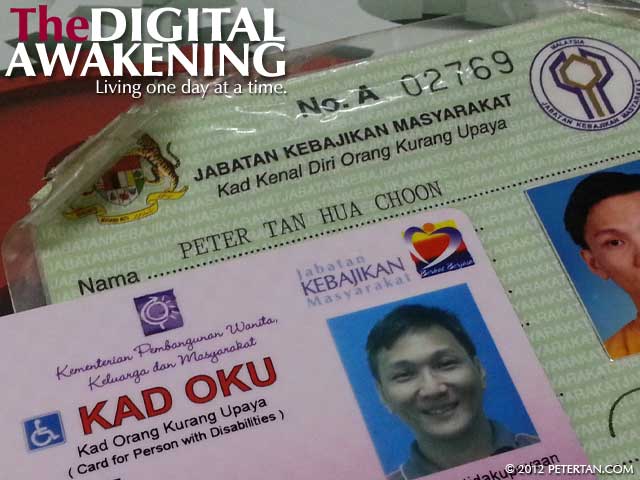I am disappointed that some Democratic Action Party (DAP) members are not sensitive to the rights of disabled people to an inclusive and barrier-free society despite the fact that DAP national chairman Karpal Singh has been a wheelchair user for the past 7 years.
Shame on MPAJ councillor Dorothy Cheong who ignored my objections against the road hump that was built right outside my house. It is still there even after a lengthy explanation on the risks that it poses to me as a wheelchair user.
It is even more disappointing that ADUN Teratai Jenice Lee came to her defence when I chided Dorothy for her patronising attitude. The councillor had said that “I believe people of your situation would more than welcome it because it will practically slow down vehicles from speeding and thus safety is the priority in the mind of these residents in your neighbourhood.”
Am I stupid or what? Would I object to something that is truly for my safety? The fact is that the hump itself is a barrier and a danger to my safety as a disabled person. It may cause my wheelchair to tip backward when I ascending or cause me to fall forward when descending. Because of this safety concern, I have been stuck on my side of the road for the past three months.
Her talking down to me like I didn’t know what I was talking about is unbecoming to her position as a councillor and facilitator between the residents and MPAJ. What irked me most was that as a representative of the people, she had not even bothered to meet me in person to understand my concerns. Instead, she brushed my complaints off just like that.
She was also reported by The Star to have said that “We can’t entertain one person’s complaint as we want to help everyone.” So, the complaints of people in the minority can simply be ignored because we are inconsequential in numbers? Going by that logic, should the government of the day disregard the interests of all minority groups in the country?
I have no use for a councillor with such a narrow perspective of issues representing me in MPAJ. I earnestly hope that this is not the stand of DAP, the political party she represents. Otherwise, disabled people and other minority groups will have a difficult time advocating for our rights should Pakatan Rakyat come to power in the next general election. For that matter, I cannot emphasise enough that such irresponsible behaviour should not be the stand of any political party.

